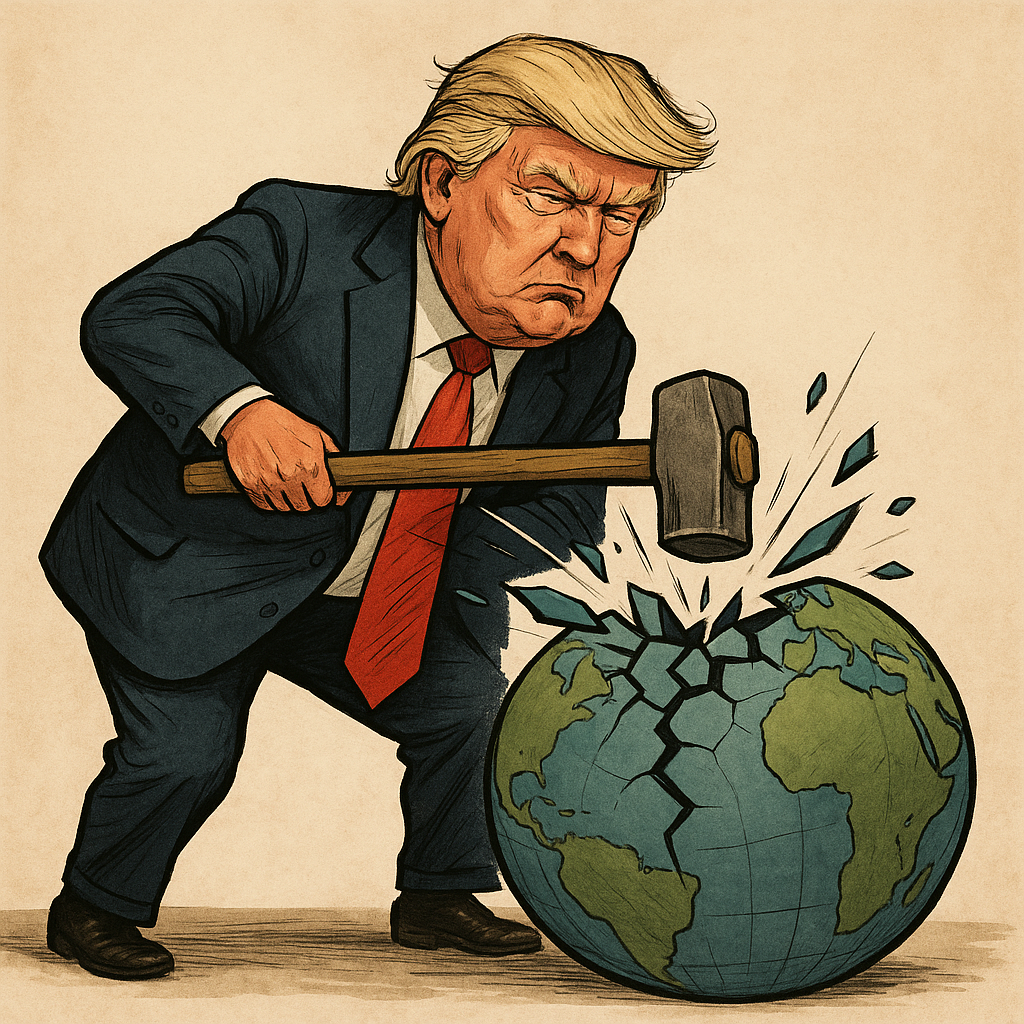Global trade wasn't working even before Trump
The role of Europe in a reform

A Vision article by Francesco Grillo.
This is one of the topics that Vision is going to present in the Sixth Siena Conference.
David Ricardo’s essay on the Principles of Political Economy is one of the most elegant treatises ever written in the history of economic science—a discipline aimed at advising governments on how to allocate scarce resources to maximize collective welfare. Yet the problem with such classical constructions is that they were based on a world that was poorer and more stable. Ricardo demonstrates, using simple mathematical formulas (he cites the example of England and Portugal dividing the production of wine and cloth), that maximum specialization is always preferable.
This conviction, which has endured for two centuries, has nonetheless produced vulnerabilities that Ricardo could not have foreseen. If only one country produces cloth (or solar panels), it takes just a pandemic—or the closure of the Suez Canal—to impoverish everyone. It is precisely this vulnerability that lends political appeal to the remedy of tariffs, which, however, may lead us from the frying pan into the fire.
Looking at the data from the first few months following the now-famous “Liberation Day” (from the trade deficit), celebrated by Donald Trump on April 2nd with the announcement of “reciprocal” tariffs, it would appear that the remedy is achieving its goal. In April, the U.S. trade deficit was cut in half (falling from nearly $140 billion to just over $60 billion), entirely due to a collapse in imports. Meanwhile, the tariffs (the 10% ones that survived a swirl of contradictory announcements) are generating around $300 million per day in additional revenue for a country with a high public deficit (7.1%). And yet, inflation at 2.2% (similar to the eurozone) appears to remain under control.
However, beyond these very short-term results, returning tariffs to levels not seen in a century (since the era when the U.S. was far from being the “center of the world”) could hurt everyone—and hurt most of all the economy that quite literally invented globalization. The United States imports much more than others because of an often implicit deal: “We handle product design, and you handle manufacturing—just like with APPLE’s smartphones.” It’s a system Americans themselves proposed to the world.
And, to return to the numbers, this is evident in the fact that the U.S. Department of Commerce’s own projections foresee GDP growth falling from 2.4% in the last quarter of 2024 to a contraction of –0.2% in the first quarter of 2025—due in part to tariffs.
Yet Trump is not wrong in asserting that global trade no longer functions as it once did. What makes it vulnerable are monopolies that we allowed to form, out of excessive faith in trade, along what we call “value chains”—chains that span a global economy built on specialization. The most well-known example is solar panels: the market share of a single country—China, which deserves credit for its planning capabilities—exceeds 90% for the production of essential components (cells, modules, semiconductors). Even without an actual war, in theory, the closure of a single port could plunge the system—and its energy transition—into chaos.
What’s needed is a new instrument, going beyond the Geneva-based WTO, which was created to resolve disputes between countries but is now paralyzed—partly because the U.S. has refused to appoint the judges necessary to settle those disputes. We need a structure capable, first and foremost, of studying and identifying vulnerabilities in supply chains, of assessing the likelihood and potential impact of bottlenecks, and of setting priorities accordingly. It must design and promote strategies to diversify risk—especially through investment in technologies that reduce dependence on monopolized supplies from any one country (and China is not alone here: from agriculture to fashion, there are many dependencies for which even multinational corporations lack a clear map).
The solution lies in a deep reform of the entire system, one that avoids a fragmentation of globalization into macro-regions—a scenario that would harm Europe most of all. Europe exports a share of its GDP (about one-third) far greater than China or the United States (which are at 10%). The European Union could find, in reforming global trade governance mechanisms, a mission that might restore its leadership—both because its interests are directly at stake, and because it is well-positioned to act as a mediator between major powers. What it needs—simply—is the confidence that it still has the capacity to govern global affairs rather than be governed by them, in a world order that no longer exists.
References:
David Ricardo (1817). Principles of Political Economy and Tariffs.
The Gurdian (2025). Gone in 40 days: how Trump’s ‘liberation day’ tariff assault unraveled. Link.
OECD (2025). Global Minimal Tax. Link.
Financial Times (2025). A tariff crisis is exactly the right time to reform the WTO. Link.

